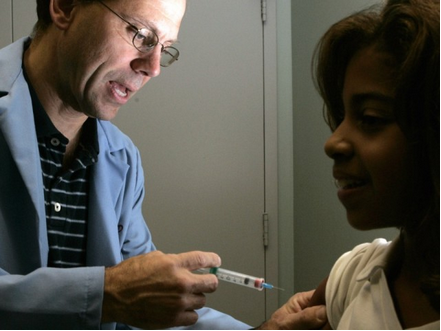![A woman gets vaccinated to prevent the flu. [Charles Rex Arbogast/AP]](http://www.jstudentboard.com/reporter/wp-content/uploads/2015/02/Screen-Shot-2015-02-05-at-5.18.15-PM-300x225.png)
In 2011 study conducted by the RAND Corporation about why people don’t get vaccinated, many replied with answers such as “I don’t need [vaccination].” This general disregard towards vaccines is despite Centers of Disease Control and Prevention (CDC) estimates of 3,000 to 49,000 deaths each year along with 200,000 hospitalizations due to influenza. The most vulnerable are younger children and people aged 65 or older, but vaccines are recommended for everyone.
The virii that cause flu are often unpredictable and vary in intensity each year. So, new vaccines are made yearly to tackle them. Vaccines are beneficial, as getting the flu can be a huge distraction. Days that could be spent productively are wasted by lying in bed; tasks that should take little time take longer due to discomfort.
“Vaccines are necessary because, as a senior, [life] is very hectic right now with finals and college applications. It will be hard for me to catch up if I get the flu so getting vaccinated is very helpful to keep me going,” explained Smruthi Maganti, a senior at Gretchen Whitney High School (WHS), to JSR.
Maganti stressed the importance of protecting herself and her classmates. As more people get vaccinated, the possibility of the flu spreading decreases.
“I have not yet gotten vaccinated this year yet, but I do plan on getting it,” she said.
A WHS faculty member, Rod Ziolkowski, told JSR, “Every year in September or October, my wife and I both get a flu shot. We have had good luck with it because it has protected us from the flu, so we will continue to get it.”
Vaccines are common and it is convenient for people to get them. The local doctor’s office, pharmacy, or health center should be able to reliably vaccinate people and allow a season free from worry.

